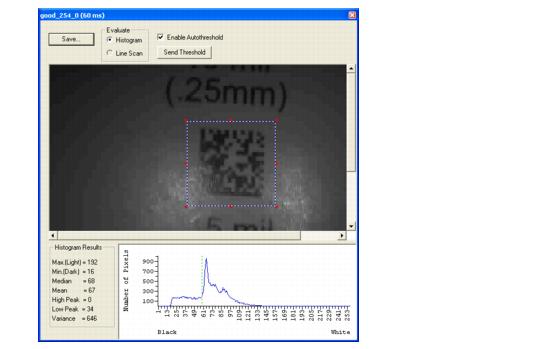Histogram
|
Usage:
|
Useful in determining quality and contrast
of symbols.
|
|
Definition:
|
A histogram is a graphic representation of
the numeric count of the occurrence of each intensity (gray level)
in an image. The horizontal axis represents the values of gray
levels, and the vertical axis represents the number of pixels for
each gray level.
|
Note: Since histograms are performed in the Imager, the
results will be saved regardless of whether the image was uploaded
as a JPEG (.jpg) or
a bitmap (.bmp).
- From the Evaluation window, click the Histogram button.
The current image is transferred into the
histogram operation. This may take a moment, since all the relevant
pixels are being evaluated intensively.
- When the Histogram window opens, you may need to expand the
window and/or adjust the scroll bars in order to bring the image
into view.
- To generate a histogram, click and drag your cursor diagonally
across the symbol or a portion of the symbol.
The image will be surrounded by an "area of
interest box", a dashed blue line with red anchor points that can
be selected and moved by placing a cursor inside the box, and can
be resized by clicking and dragging the anchor points.






